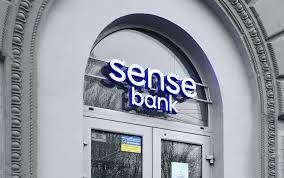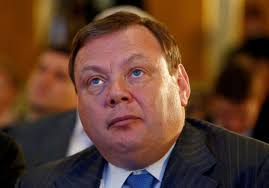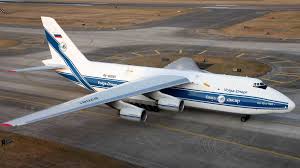Russian businesses have been facing unprecedented sanctions pressure, many of which have resulted in the loss of ownership over numerous Russian-owned assets based in the West due to their being frozen, transferred to Western management, total seizure or forced sales. In many of these cases, these violations are considered direct and indirect expropriation of Russian foreign investments that are protected by international agreements. For this reason, in recent years, there has been an increase in the number of Russian investors filing claims against businesses in other countries in international investment arbitration. In this article, we provide some case studies, and analyze the causes, grounds and resolution prospects of these types of disputes.
International Arbitration

International investment arbitration, designed to resolve disputes between foreign companies, is a common contractual clause typically deployed in sale and purchase agreements. According to UNCTAD (United Nations Conference on Trade and Development, the UN body on trade and development), over the past 11 years, the number of investment disputes has more than doubled – from 600 cases at the end of 2013 to 1401 by the end of 2024 – much of it sanctions related.
The share of these types of claims by Russian businesses for the protection of investments has also been growing, and is also primarily due to sanctions restrictions. The expansion of sanctions pressure creates also increases the number of these disputes.
Case Study 1: Sense Bank

On December 29, 2023, ABH Holdings SA (ABHH, its main owners Mikhail Fridman, Petr Aven and Andrey Kosogov), registered in Luxembourg, filed a claim with the International Centre for Settlement of Investment Disputes (ICSID) against ABH Ukraine Ltd. The subject of the dispute was the forced nationalization in July 2023 by the Ukrainian government of the Sense Bank. which was owned by ABHH by 57.6% directly and by 42.4% indirectly through the Ukrainian government owned, Cypriot subsidiary ABH Ukraine Ltd. No compensation was paid. ABH Holdings has asked the ICSID to recognize the expropriation as illegal and to collect compensation in the amount of at least US$1 billion.
Case Study 2: Mikhail Fridman

On 13 August 2024, Alfa Group founder Mikhail Fridman initiated proceedings against Luxembourg in the Hong Kong International Arbitration Centre (HKIAC), seeking US$15.8 billion in compensation for the freezing of his assets, which he managed through Luxembourg holdings. The basis for the claim was the 1989 Treaty on the Mutual Encouragement and Reciprocal Protection of Investments between the USSR (Russia became its successor), Belgium and Luxembourg.
Fridman’s assets in numerous countries were frozen due to EU sanctions, which in his case he states is in violation of international law, arguing that they were imposed only on the basis of his citizenship, and not within the framework of multilateral UN agreements concerning the protection of asset ownership.
Case Study 3: Volga-Dnepr Airlines

On August 26, 2024, Volga-Dnepr Airlines announced the filing of a lawsuit against the government of Canada. This dispute is related to the detention of an An-124 aircraft that arrived in Toronto in February 2022 with COVID-19 tests from China, delivered at the request of the Canadian government. After landing, the aircraft was prohibited from leaving the country, as Canada had banned Russian airlines from using its airspace.
In April 2022, Canadian authorities imposed direct sanctions against Volga-Dnepr, and in 2023 issued an order to seize the aircraft. The company accuses Canada of “expropriation of property” and seeks compensation for damages estimated at at least US$100 million, citing a violation of a 1989 bilateral investment treaty with the USSR. The dispute will be considered under UNCITRAL rules.
Case Study 4: Technonicol Group

In October 2024, the Technonicol Group, owned by Igor Rybakov and Sergey Kolesnikov, filed a claim with the Stockholm Arbitration Court over the forced sale of its insulation materials plant in Poland. In May 2023, the Polish governmment imposed national sanctions against Technonicol and its owners, placing the plant under external management and prohibiting the transfer of any information about the enterprise to the Russian management. The forced sale of the asset was later announced, and in August 2024, it became known that the deal with the buyer chosen by the Polish government, Holcim Polska, was in its final stages. No compensation has been paid. Technonicol considers these actions to be expropriation.
Case Study 5: Tashir Construction

On June 4, 2025, Samvel Karapetyan, president of the Tashir construction and industrial group of companies and dual national of both Russia and Armenia, filed a lawsuit against the French government via the ICSID. The basis for this was the actions of the French authorities, who froze the businessman’s assets as part of a criminal investigation into money laundering. In early 2024, Samvel Karapetyan’s villa on the Cote d’Azur, worth over €120 million, was seized in France, as the prosecutor’s office decided that Gazprom Neft was the “actual beneficiary” of the property.
Karapetyan states that these actions have violated the 1995 agreement on the promotion and mutual protection of investments between Armenia and France, and is a dispute was caused by “a politically motivated campaign in France to arrest and confiscate the assets of businessmen associated with Russia.”
Grounds for Arbitration

Arbitration is the process of settlement of disputes, and is a well-established mechanism, as appealing to international investment arbitration is more preferable for many investors than litigation in the national court of the state that violated their rights. It lessens the chances of political interference in straightforward claims Appealing to investment arbitration allows the claimant to recover a significant amount of damages from the state and offers a neutral international platform for protecting the interests of investors.
When a claim is filed, the arbitration tribunal first analyzes whether it has jurisdiction to hear the dispute. Typically, the jurisdiction has been previously agreed by the two sides legal departments and is acknowledged in the sales/purchase contract. These are often also referred to in in Bilateral Investment Treaty (BIT) agreements between two countries. These provide mutual investor protection via for the payment of compensation for the expropriation of a foreign investor’s assets by the state and regulates the procedure for considering the claim. Russia has signed 82 agreements on the protection of foreign investments with other countries, 64 of which are in force (the rest have not yet been ratified). Only one BIT with Russia has been terminated – the agreement with Ukraine. It ceased to be effective on January 27, this year, but for investments made before this date, mutual investor protection remains until 2035.
Russia’s other bilateral BIT agreements covering mutual investment protection, and that are in force today, are with:
Commonwealth of Independent States / Eurasian Economic Union
Armenia, Azerbaijan, Kazakhstan, Moldova, Turkmenistan, and Uzbekistan
Africa
Angola, Equatorial Guinea, Libya, South Africa, and Zimbabwe
Europe
Albania, Austria, Belgium, Bosnia, Bulgaria, Croatia, Czech Republic, Denmark, Finland, France, Germany, Greece, Hungary, Italy, Lithuania, Luxembourg, Macedonia, Montenegro, Netherlands, Norway, Romania, Serbia, Slovakia, Slovenia, Spain, Sweden, Switzerland, and the United Kingdom
Middle East
Bahrain, Egypt, Iran, Jordan, Kuwait, Lebanon, Palestine, Syria, Qatar, Turkiye, United Arab Emirates, and Yemen
Asia
Cambodia, China, Indonesia, Japan, Laos, Mongolia, North Korea, South Korea, Singapore, and Vietnam,
Latin America
Argentina, Cuba, Nicaragua, and Venezuela
North America
Canada.
Other Dispute Mechanisms

In the absence of a BIT, a multilateral international treaty may serve as a basis for investment arbitration, for example, the 1994 Energy Charter Treaty, the 1992 Canada-US-Mexico Free Trade Agreement (NAFTA), the 1965 Washington Convention.
In 2022, Russia officially withdrew from its participation in the Energy Charter Treaty, so only investors who made investments before then are able to receive protection under it. Contracts between the investor and the host state, national investment laws, and regional trade agreements may also allow disputes to be considered in investment arbitration.
Russian investors, filing investment claims in connection with the blocking of their foreign assets due to sanctions, generally expect that these actions will be recognized as indirect expropriation – the deprivation of the right to manage, dispose of property and benefit from it.
That dispute may require additional legal clarifications, as under the conditions of Western sanctions pressure, new opinions should be formed both on the concept of expropriation and on investor guarantees. According to UNCTAD, arbitrators recognized the fact of direct expropriation of an asset in 52 cases, and indirect expropriation in 84.
Timeframes

Investment arbitration is not a fast procedure. In ICSID, the average duration of a case from filing a claim to issuing a decision is 3.75 years. Procedures under UNCITRAL rules usually last from two to five years, but can be longer – the consideration of the dispute between the former YUKOS shareholders and Russia took about nine years from the filing of the claim in 2005 to the decision of the Hague arbitration in 2014.
This is because respondent states almost always challenge the jurisdiction of the arbitrators, object to the merits of the claims, and the amount. This means that the process is often divided into two or even three stages with interim decisions on individual issues.
Investment arbitrations also require a high standard of proof of facts. It is necessary to present a large array of documentary evidence, including investment contracts, business correspondence, data on transfers of funds, licenses, in addition to a large volume of written evidence, witnesses and experts on various issues often participate in these cases.
In addition, investment arbitration proceedings are associated with significant financial costs. According to ICSID estimates, the average plaintiff’s costs for the process are US$5.62 million – which is why the cases currently under process involving Russian assets is rather smaller than it otherwise would have been. Arbitration procedures involving Russian persons are also significantly complicated by sanctions, including the denial of visas and so on – this results in restrictions on the appointment of arbitrators from unfriendly countries, difficulties with paying for legal services and arbitration fees, and limited access to legal representation in some jurisdictions.
In international investment arbitration there is no system of legally binding precedents, as a result of which the legal position adopted by an arbitration tribunal in one case will not necessarily be adopted and reproduced by another tribunal when considering another case, even if the subject and grounds of the dispute are similar. This means there is no uniform practice in considering investment disputes.
Enforcement of Awards

There are two systems for enforcing arbitration awards in international investment disputes: the Washington Convention of 1965 (establishing ICSID) and the New York Convention of 1958 (on the recognition and enforcement of foreign arbitral awards). The main difference between them is in the approach to recognizing and enforcing arbitration awards.
The Washington Convention only allows for the annulment of an arbitration award in exceptional cases (for example, bribery of an arbitrator) and, unlike the New York Convention, does not provide grounds for refusing to recognize and enforce an award in national courts. In addition, under the Washington Convention, ICSID awards are directly effective, as if the award had been made by the courts of the state.
It is probably for this reason that ICSID decisions are often implemented voluntarily. According to the center’s report from June 2024, in 66% of cases, damages awarded to investors were paid by the state voluntarily or as part of a settlement agreement.
The state can implement the decision voluntarily in order to maintain its reputation at the international level, especially if it needs investments from other countries, a credit of trust on the world market, or if it is important for it to maintain relations with certain countries. It is usually possible to settle the case peacefully if the investment dispute is not related to sanctions.
Western Settlement Preventions

In the event that the state refuses to pay voluntarily, the forced execution of arbitration awards presents significant difficulties. Investors are forced to search for and try to recover assets of debtor countries for years, which would not be protected by immunity. The unfriendliness of a country in itself does not affect its obligation to execute an arbitration award under the New York or Washington Convention.
However, in practice, the execution of awards in favour of Russian businessmen in unfriendly countries is complicated by sanctions restrictions on making payments to Russian individuals, frozen bank accounts and assets. For a sanctioned Russian investor, an option for executing an arbitration award in his favour may be for the defendant to deposit funds in the court or obtain a license from the regulator for money transfers, then after the sanctions are lifted, the plaintiff is guaranteed to be able to receive the money.
In addition, one cannot exclude the risk that, when considering a dispute related to sanctions, arbitrators may take a certain political position that will hinder the resolution of the dispute in favor of the injured investor. But not all international arbitrators share the authorities’ approach to the broad application of sanctions, which leaves some Russian investors with a chance of success.
However, some unfriendly countries may also refer to the fact that “enforcement of the decision would be contrary to their fundamental values, interests or sanctions legislation, which is of a super-mandatory nature and is part of the public order.”
In the European Union, United Kingdom and the United States, courts increasingly refuse to recognize and enforce decisions in favour of Russian businessmen under the pretext of a threat to public order or the direct effect of sanctions.
For example, in the measures from the 18th package of EU sanctions, the European Union is trying to unilaterally free itself from its obligations under the BIT many of its members have unilaterally agreed with Russia.
In conditions of total mistrust between countries, the best solution would probably be to create a separate specialized body that would resolve investment disputes involving the Russian Federation, unfriendly states and investors. This option is being discussed in the legal community, and although the reality of creating such an arbitration platform is unlikely today, the concept may be in demand in the future.
Further Reading
BRICS Dispute Resolution To Replace Western Based Arbitration Courts

 Русский
Русский













